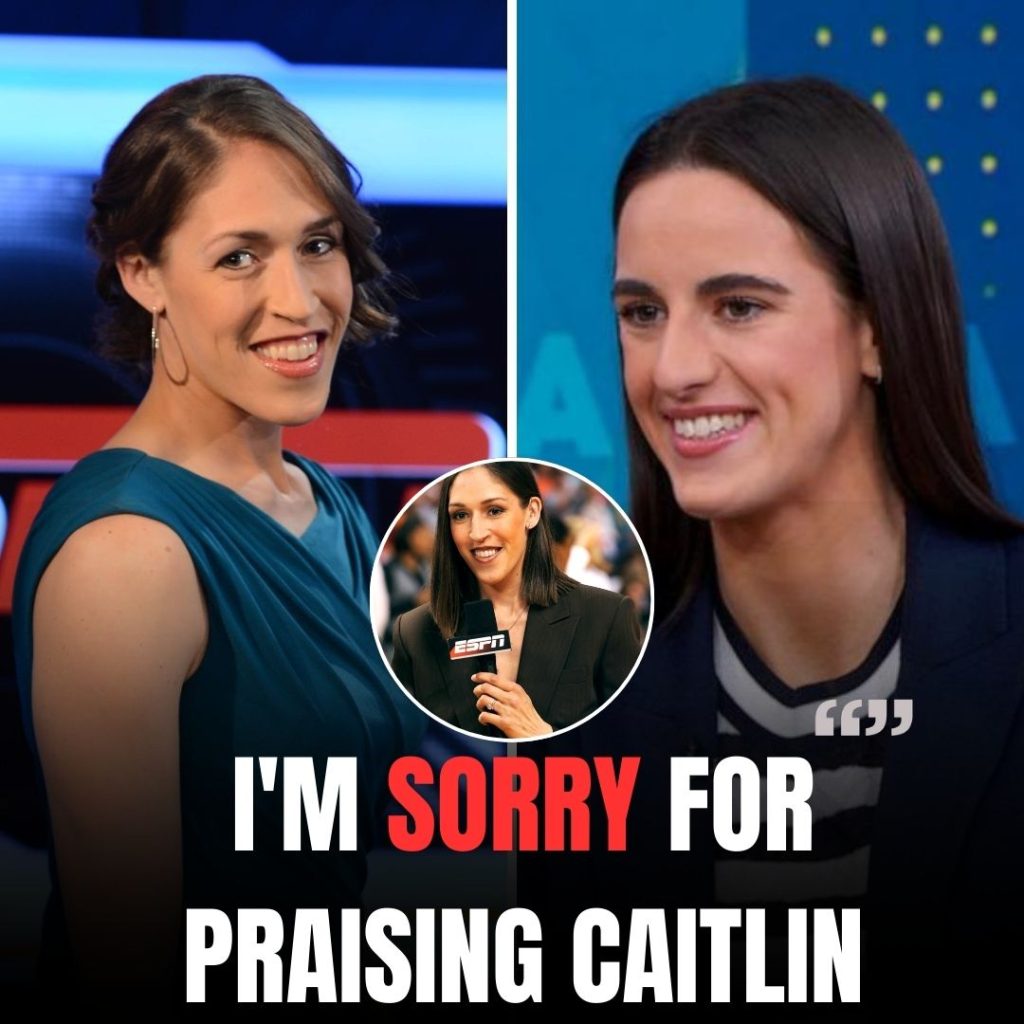
In a recent twist of events, ESPN analyst and former WNBA star Rebecca Lobo found herself in the spotlight for an unexpected reason. Known for her insightful commentary and deep understanding of basketball, Lobo’s recent remarks about Iowa Hawkeyes standout Caitlin Clark have stirred quite a bit of controversy, ultimately forcing her to backtrack.
Rebecca Lobo’s career as a sports commentator has been characterized by her balanced and knowledgeable approach to the game. However, her recent praise for Caitlin Clark, a rising star in women’s basketball, did not sit well with some fans and analysts. During a broadcast, Lobo highlighted Clark’s impressive performance, noting her exceptional skills, court vision, and scoring ability. “Caitlin Clark is an absolute force on the court,” Lobo stated. “Her ability to dominate games and make her teammates better is reminiscent of some of the greatest players we’ve seen.”
While many agreed with Lobo’s assessment, the backlash was swift and unexpected. Critics argued that Lobo’s comments were overly effusive and potentially overshadowed other deserving players. Some suggested that her praise of Clark was disproportionate, given the depth of talent across the women’s college basketball landscape. This criticism came from various quarters, including fans, fellow analysts, and even some players who felt that other standout athletes deserved equal recognition.
The controversy quickly gained momentum on social media, with debates raging about Lobo’s comments. Some fans defended her right to express her opinion, emphasizing that Clark’s performance warranted the praise. Others felt that Lobo, as a prominent voice in women’s basketball, should have been more measured in her remarks to avoid inadvertently minimizing other players’ contributions.
Faced with the growing backlash, Lobo took to social media to clarify her comments. In a series of tweets, she acknowledged the validity of the criticism and expressed regret if her words had been misconstrued. “I have immense respect for all the talented athletes in women’s basketball,” Lobo wrote. “My intention was never to overshadow anyone. Caitlin Clark is a phenomenal player, but that doesn’t take away from the incredible contributions of her peers. I apologize if my comments suggested otherwise.”
Lobo’s response was met with mixed reactions. Some applauded her willingness to address the issue head-on and appreciated her efforts to clarify her stance. Others remained skeptical, feeling that her initial comments had already done the damage and that her backtracking was more about appeasing critics than a genuine change of heart.
This incident highlights the challenges sports analysts face in navigating the fine line between praise and perceived favoritism. Lobo’s predicament underscores the sensitivity surrounding public commentary on athletes, especially in a sport striving for greater recognition and equality. While analysts are tasked with providing insightful analysis, they must also be mindful of the broader implications of their words.
As for Caitlin Clark, the young star continues to dazzle on the court, her performances speaking for themselves. The controversy surrounding Lobo’s comments has, if anything, further highlighted Clark’s impact on the game. For Lobo, this episode serves as a reminder of the power and responsibility that comes with her platform.
In conclusion, Rebecca Lobo’s experience underscores the complexities of sports commentary in the age of social media and heightened scrutiny. While her intentions were likely rooted in genuine admiration for Caitlin Clark’s talent, the subsequent backlash and her need to backtrack reveal the delicate balance analysts must maintain. As the conversation around women’s sports continues to evolve, so too must the approaches of those who comment on it.
4o